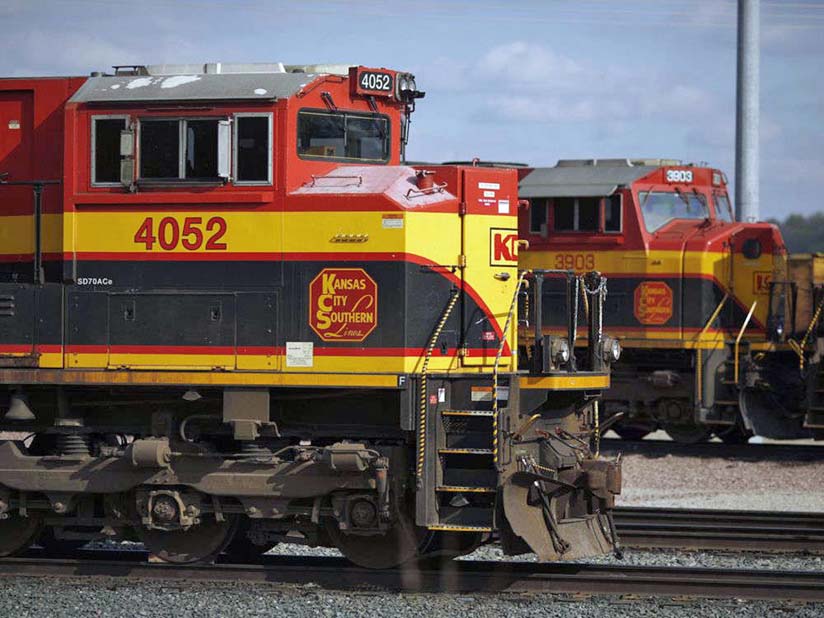
North America - The biggest business story in recent months is the fight between Canada's two railway giants, Calgary-based CP and
Montreal-based CN, to take control of the American railway KCS.
The winner will own the continent's first railway that links the United States, Mexico, and Canada.
In March, CP signed a deal with KCS to buy it for US$25.2 billion, then CN swooped in and negotiated a deal to pay US$30 billion.
KCS's board of directors accepted the higher bid and paid a US$700 million break fee to CP.
 Which CN apparently paid.
Which CN apparently paid.But price is only part of the story.
Now the bid must be approved by America's national railway regulator, the Surface Transportation Board (STB), and it will decide soon whether CN gets the prize
or not.
If not, then analysts expect CP will bid again.
The board is evaluating concerns that a merger with CN will lessen competition, as duplicate routes will be eliminated.
U.S. President Joe Biden recently signed an executive order designed to stop such anti-competitive corporate activities and mergers, and this deal will be its
first test.
"What we've seen over the past few decades is less competition and more concentration holding back our economy. Rather than competing for consumers, they
consume their competition," Biden said in a 9 Jul 2021 speech.
If CN's bid is rejected, then CP, whose bid doesn't reduce competition, will likely return with a new bid.
But there's another issue to consider, CN is headquartered in Montreal, where Quebec laws require that head offices must operate in French and all internal
communications must be in that language (though English can be used, as well).
These language laws add to the cost of doing business, but also, in practical terms, restrict head office opportunities and advancement to those who are fluent
in French.
There's also a contrast in cultures between the two railroads.
CN is one of the biggest corporations in Quebec, which is a socialistic and heavily regulated province with the highest income taxes in Canada.
Its controversial linguistic politics have led hundreds of head offices to move out of the province over the years.
And the government's proposed new language law, Bill 96, will only make things worse.
By contrast, Calgary is the free enterprise capital of Canada, with the country's highest incomes, and some of the lowest tax rates.
That aside, the CN deal is controversial for other reasons.
In May, the U.S. Department of Justice wrote in a filing to the STB that, "A CN/KCS transaction poses additional dangers to competition stemming from the
potential elimination of direct, parallel competition on routes served by both railroads, for example between Baton Rouge and New Orleans."
Likewise, Rep. Peter DeFazio, chair of the House transportation and infrastructure committee, submitted a letter to the STB, expressing "opposition to the
voting trust proposed by CN in its proposed merger with KCS. I am concerned that this proposed trust is not in the public interest. The trust would reduce
competition and prejudice the outcome of the STB's merger proceeding."
The board will make a decision soon.
It's a battle that will not only decide the future of anti-competition policy south of the border, but also what the future holds for Canada's two warring and
culturally distinct railway giants.
Diane Francis.
(there was no image with original article)
(usually because it's been seen before)
provisions in Section 29 of the Canadian
Copyright Modernization Act.
